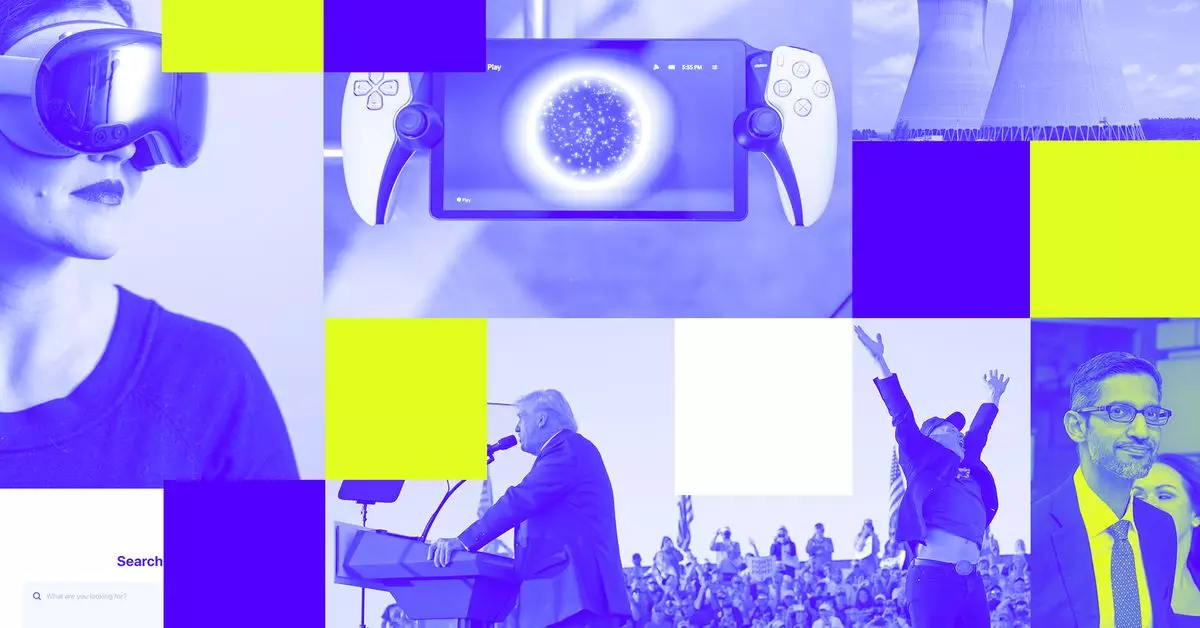As we approach the end of 2024, the technological landscape has undergone tremendous shifts that are reshaping how we interact with the digital world. From the much-anticipated launch of Apple’s Vision Pro to legal challenges faced by tech giants like Google, this year has certainly been a rollercoaster ride for consumers and industry insiders alike. The speed at which advancements occur can be dizzying, as innovations arrive to tackle our everyday challenges while simultaneously creating new dilemmas.
Notably, the arrival of AI technologies has dominated headlines, generating excitement as well as unease about the implications of machine intelligence. This duality reflects our conflicted feelings about technology’s role in our lives—its potential to enhance our experience while also raising ethical questions about privacy, security, and employment. Moreover, the rising influence of figures like Elon Musk on the political stage adds another layer of complexity to the conversation surrounding technology and governance.
2024 was also marked by significant political events, including a consequential U.S. election that has extended far beyond traditional campaigning. A growing trend has been the integration of technology companies into political discourse, affecting how campaigns are run and information is disseminated. The tech industry is becoming a key player, influencing not only the electoral process itself but also shaping public opinion through social media algorithms and targeted advertising.
As a result, the relationship between consumers and tech companies has been altered. Trust has eroded for many, leading to greater scrutiny of how these companies operate and their impact on democracy. The once-clear delineation between technology and politics has blurred, prompting a need for consumers to critically evaluate which entities they support and how those choices affect societal norms.
On a more personal note, 2024 has reminded us yet again of the dual-sided nature of technology. Some innovations, like the latest smartphones and wearables, continue to captivate and engage users, making our lives easier and more connected. However, attempts to forge new frontiers—such as smart glasses and other gadgets—have faltered in capturing the mass market, raising questions about our readiness to embrace these evolving technologies.
It’s a stark realization that, despite cutting-edge advancements, no gadget has effectively replaced our reliance on smartphones. The fatigue from constant gadget launches brings about a critical reassessment of what technology truly brings to our lives. Are we in a technology arms race, or are we simply chasing shiny objects that may not fulfill our evolving needs?
As we gear up for 2025, the best course of action for both industry leaders and consumers is to foster open dialogues about the direction of technology. What innovations will continue to be pursued, and what societal values should they reflect? As enthusiasts, consumers, and critics of technology, voicing our concerns and aspirations will be essential for shaping a tech landscape that truly serves humanity’s diverse needs.
In the heart of this profound transformation lies an opportunity for all of us to participate in an ongoing conversation about the future of technology and its impact on society. With a burgeoning interest in redefining our digital relationships, we can march forward with intention and mindfulness, armed with insights from the tumultuous but transformative year that was 2024.

